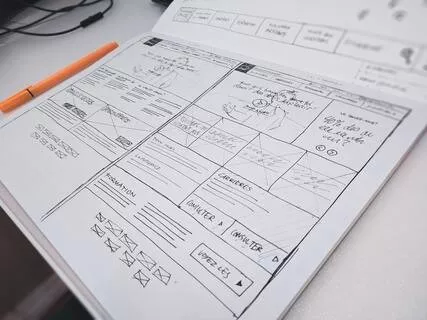Job costing is an accounting technique used to determine the exact costs incurred in specific operations. It monitors and records the actual materials and labour expenses for individual jobs and assigns overhead to jobs at a pre-determined rate.
So how can we carry out this activity efficiently, and what modern tools are available to simplify the process?
What is Job Costing ?
Job Costing consists of precisely recording the hours of actual work performed by employees, and the details of the tasks carried out during these working hours. It helps to ensure that all jobs carried out by the company are profitable and identifies areas that require improvement so you can make the best strategic decisions that will result in increased profits.
This contrasts with Process Costing which is more generalised and determines the costs of lengthy production runs involving standard products and is based on the average number of units produced per day.
Monitoring of production activities can be carried for individuals or for teams, or both. In addition, it will allow you to factually and objectively discuss with employees their areas for improvement during annual evaluation interviews. It is therefore a very effective HR tool.
However, it may be necessary to overcome the reluctance of some employees who see this activity monitoring as a means of controlling them under the guise of ensuring better performance of the company.
Setting up activity monitoring: how to go about it?
To be effective and accepted by all, any activity monitoring must be:
- Simple, so data gathering is straight forward.
- Comprehensive, to collect as much information as possible for continuous
- Updated regularly to ensure the process reflects reality.
In many companies, hours of professional activity are tracked using homemade forms or Excel spreadsheets, which are then validated by the supervisor before being used.
However, it is now possible to fully automate this process using "time and activity management" software, otherwise known as ATM. It should be noted that many companies developing HRIS software offer ATM or Job Costing solutions that complement the existing HRIS software, either as a module or as an option.
Such innovative software provides many benefits at the click of a button, such as:
- Customisable configuration to suit the operation of the company.
- Detailed timesheets (time slots or day counters by tasks, projects, or clients).
- Monitoring additional costs incurred (overtime)
- Validation notifications for managers.
- Dashboards and visualization of time and budget data with filters (employees, projects, customers).
- Creation of custom reports.
- Data export to other applications.
Job Costing allows collection of data that can be collated to provide accurate information such as:
- Detailed analysis of costs in each job in the manufacturing process.
- Determination of the profitability of the job.
- Prevention of duplication of work.
- Efficiency of the manufacturing process.
- Immediate rectification of any defective work.
- Budget control.
- Ensure job costing is based on the actual work done.
Analysis of this data will also allow the company to highlight areas for improvement, as well as accurate data for invoicing customers or calculating employee pay slips.

Job Costing: the goal and the expected effects
One of the main challenges is obviously to improve the performance of the teams, but it is also a great way to manage your projects, their follow-up, and their progress.
The use of software dedicated to monitoring activities has multiple advantages in terms of management, human resources management, bookkeeping, and finance including:
Reducing administrative burden
Employees can fill in their own time sheets electronically in a simple and easy-to-use application created for them. They can easily check their accumulated overtime and any balance of hours to be recovered, so they no longer need to solicit the HR department each month with their requests.
In addition, this information can be directly interrogated by managers for the validation of timesheets. This information can be exported for customer invoicing and payroll calculation by accounting and human resources departments. This eradicates omissions and double entry!
These applications can be actioned using a computer, tablet, or smartphone to ensure easy access for all employees in real-time.
Cost and time control
Each manager can display the tasks performed and the costs incurred for each activity in real-time. This can then be used to identify problems, and control and refine the management of projects by redistributing resources.
Performance monitoring
Data analysis is an indispensable tool for financial services, which will be able to calculate production costs, and margins and measure profitability. Armed with this real-time information, the company will be able to define or adjust objectives or rates to maximise profitability.
Job Costing ensures data is reliable and respects the transparency of the information collected
The Kelio HRIS system is configured to comply with employment legislation and any collective agreements to which your company belongs. The Job Costing software can be tailored to suit your organisation and adapted perfectly to your specific operational procedures.
Kelio, the complete HRIS software, offers simple solutions for managing activities and working hours tailored to your company.



